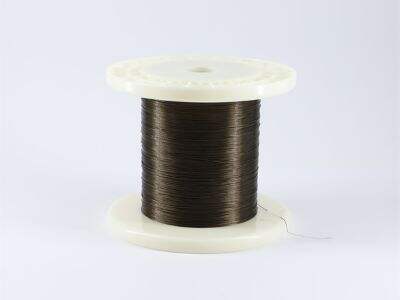Options of Different RF Coaxial Cable Types
You can choose for your device: When it comes to selecting the ideal RF coaxial cable for your particular application or operations, this could be a bit challenging and daunting as you might not know how to navigate the countless products in the market. When it comes to the cable, different equipment, equipment’s same requirements need different type of cable, which vary at length, for a good and easy transfer To get the maximum signal quality. At HOTTEN Electronic Wire we know that choosing the right cable for your equipment is a major consideration, and we have compiled this handy guide to help you make an informed decision. From learning impedance and frequency requirements to knowing which type of connector need to be used, we will walk through all the important things you must know in order to pick up a best RF micro coaxial cable vor your application.
How to select the best RF Coaxial Cable for maximum signal transmission
How to choose the right RF Coaxial Cable To select and use the correct RF coaxial cable for best signal transmission, begin with known requirements of your equipment. The type of cable that's best for you will depend on such factors as the signal frequency, proximity to outside interference sources and how much power the cable needs to carry. Impedance is another thing to take a close look at, because if the impedance isn’t right you will again lose signal and suffer degraded performance. And, by choosing a cable with the proper shielding, you can reduce interference and maintain a clean signal. At HOTTEN Electronic Wire, we provide RF micro coaxial cable specifications in a variety of styles to cater to your individual needs – so you can easily find the cable that’s right for your exact application.
Impedance vs. Frequency Communication cables for RF-Applications
When choosing an RF coaxial cable for your application, impedance and frequency requirements are two of the most important factors. Impedance is the measure of the amount of opposition to current flow an electric circuit presents and selecting a cable with the proper impedance is necessary to maximize signal transmission. The impedance of cables is given in ohms, not all cables have the same impedance and it's important to match the impedance of the cable to that of your equipment if you want the best performance. Frequency requirements also come into play when choosing the right PCB material, as higher frequency signals need cables with certain parameters in order to keep signal integrity. By knowing the impedance and frequency needs of your device, you know what kind of RF coaxial cable to choose.
The significance of selecting the correct RF connector type for your hardware
Apart from selecting the appropriate cable, use of proper gender type is important to ensure a quality signal. The connector that is right for you will depend on the equipment you are connecting and the application of your cable. Connectors differ in durability, ease of use and signal-carrying property, so choose a connector that fits your cable as well as your application. You will find the right connector available for your RF equipment at HOTTEN Electronic Wire, where offer various types of connectors for different purposes.
Things to consider when choosing the correct cable length and cable g ift box size0mm:
You should note that you need to consider the length and diameter of cable when you opt for RF coaxial cable for your equipment. The amount of signal loss and attenuation can be affected by the length of the cable: for higher frequencies, you may experience more loss than for lower MHz and GHz ranges — so it’s key to choose a length that matches your requirements with each project. Cable diameter is also a factor for signal transfer, as slimmer cables will only be capable of carrying lower power levels and imparting less effective shielding. When reviewing the length and diameter of a cable you can be sure that your selecting cable suitable for your equipment & application.
The importance of quality when using RF coaxial cables for your application
For RF coaxial cable, quality is critical. Selecting a good cable will leave you with the best quality for both performance and consistency. Good quality cables are covered by high density polythene insulator which ensures signal transmission with minimum quality loss. Quality cables are also more likely to satisfy industry standards related to performance and safety, so your equipment works efficiently and safely. At HOTTEN Electronic Wire quality is number one in all of our products as we provide cables that endure and meets the specifications our customer needs. With the selection of high-quality RF micro coax rf cable assemblies, your systems operate with maximum efficiency and performance.
Table of Contents
- Options of Different RF Coaxial Cable Types
- How to select the best RF Coaxial Cable for maximum signal transmission
- Impedance vs. Frequency Communication cables for RF-Applications
- The significance of selecting the correct RF connector type for your hardware
- Things to consider when choosing the correct cable length and cable g ift box size0mm:
- The importance of quality when using RF coaxial cables for your application

